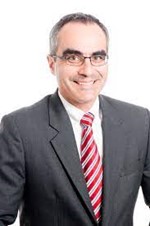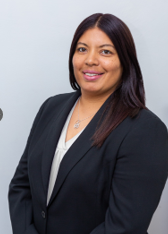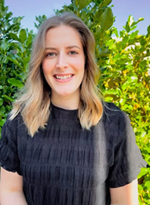Te Rau Poka – Māori Surgical Academy
Te Rau Poka can be seen as a surgical academy for Māori, providing support, advice and mentorship from secondary school to the midpoint of their surgical careers.
On this page
Tēnei te tira hou, e haere ake nei – A new generation is rising
Modelled on Te Rau Puāwai, Massey University’s exemplar Māori success programme, Te Rau Poka refers to the pursuit of excellence in the specialised area of surgery. It embodies the idea of holistic excellence, encompassing all aspects of one’s being, such as physical, mental, spiritual, and cultural wellbeing. Te Rau Poka represents a core value in Māori culture, emphasising the importance of striving for excellence and maintaining a balanced way of life.
Aims and Objectives
One of six objectives of Te Rautaki Māori Health Strategy, Whakatipu (workforce development) aims to increase and maintain the numbers of Māori surgeons to levels that reflect Aotearoa New Zealand’s (AoNZ) Māori demographic. Specifically, one hundred and fifty of eight hundred surgeons (18%) by 2040 (the bicentenary of Te Tiriti o Waitangi) creating an environment that is culturally safe for Māori.
Kaiārahi – Trainee Liaison Lead Professor Jonathan Koea has spearheaded the programme from its inception in 2021. Members of the Māori Health Advisory Group support the programme by promoting medicine and surgical career pathways to Secondary School students who attend Pūhoro STEMM career seminars in their regions.
Currently there are 20 fully qualified surgeons and 32 surgical trainees who identify as Māori. Te Rau Poka offers cultural support, mentoring and an annual hui (gathering) for Māori surgical trainees. This year’s hui will be held in Te Whanganui a Tara (Wellington) at Te Rau Karamu marae in Pukeahu.
A research project has been commissioned by Te Rau Poka to investigate the supports and barriers for Māori surgical trainees. The research is led by Dr Nasya Thompson, a PhD candidate and an aspiring surgeon.
Foundation for Surgery
Newsletters
Access the latest newsletters here.
Hotoke June 2025 (PDF 812.84KB)
Tō mātou tīma – Meet the team
Kaiārahi – Trainee Liaison Lead
Professor Jonathan Koea
BHB, MHB (Hons), MBChB, MD, FACS, FRACS

Taranaki te maunga
Ko Mimitangiatua te awa
Ko Tokomaru te waka
Ko Ngāti Mutunga me Ngāti Tama ōku iwi
Ko Urenui Pā te marae
Ko Jonathan Koea tōku ingoa
Professor Jonathan Koea is an Auckland-based general surgeon who specialises in the health of the liver, gallbladder, stomach, pancreas, and gastrointestinal tract.
Growing up in Taranaki, he made the move to Auckland to study medicine at Waipapa Taumata Rau, the University of Auckland. When he first completed his surgery training, he was the only Māori General Surgeon in Aotearoa, New Zealand. Therefore, a large part of his career has been dedicated to improving the health of Indigenous communities in both New Zealand and Australia through research and advocacy and supporting the development of an Indigenous medical workforce through his appointment as Māori Supervisor of Surgical Training with the Royal Australasian College of Surgeons.
Currently, he is the head of the upper gastrointestinal unit at Waitemata District Health Board and is a general surgeon at Harbour Surgery Centre. He is also a Professor of Surgery at the University of Auckland School of Medicine, where he supports the next generation of surgeons and contributes to research.
As an advocate for Māori health, he brings a Māori perspective to be involved in the National Perioperative Mortality Review Committee, the Auckland Northland Division of the Cancer Society of New Zealand, and the board of the national cancer agency, Te Aho o te Kahu.
Jonathan Koea | 100 Maori Leaders
Kaiwhakarite – Māori Health Equity Lead
Dr Ruth Ann Herd
DHSc, M.Ed. Dip Tchg KKM, PG Dip Fine Art

He uri tēnei no te Kāhui maunga
Ko Taranaki te maunga
Ko Waiongana te awa
Ko Puketapu te hapū
Ko Te Atiawa nui tonu te iwi
Kei Whanganui a Tara ahau e noho ana
Nō reira, tēnā koutou, tēnā koutou, tēnā koutou katoa.
Ruth was part of the Te Reo Māori language revitalisation movement from the early 1990s, then moved into Māori public health in the 2000s. She has worked in a variety of educational settings from early childhood to teacher training, kura kaupapa Māori and total immersion wānanga, health promotion and facilitating healing programmes for problem gamblers and a brief stint in Māori television.
Her Doctoral research explored the perspectives of taiohi Māori who were exposed to problem gambling among whānau. Ruth recently worked as a researcher on the Oranga Tamariki Inquiry and in the COVID Response Unit at Auckland Regional Public Health as a whānau advocate. Currently Ruth is the Kaiwhakarite- Māori Health Equity Lead at RACS.
Ruth enjoys gardening, art and crafts and is a proud grandmother of three mokopuna.
Dr Ruth Herd | 100 Maori Leaders
Kaiwhakahaere – Te Rau Poka (Administrator) Māori Surgical Academy
Leanne Wagner

Originally from Cape Town South Africa, I moved with my family to Aotearoa New Zealand in December 2015.
I am a highly skilled and adaptable administrator with extensive experience in both the public and private sectors in Aotearoa New Zealand and internationally.
I'm recognised for efficiency, attention to detail, and the ability to quickly adapt to new environments.
I am a dedicated team player with strong communication and organisational skills, committed to delivering high-quality administrative support.
I am super excited to be part of Te Rau Poka Surgical Academy team and looking forward to meeting all the students at our Wānanga for terms two and three: ‘Let’s go!’ See you there.
Education
Cape Peninsula University of Technology, Cape Town, South Africa
- Baccalaureus Technologiae – Public Management (Cum Laude)National Diploma – Public Management (Cum Laude)
Damelin College, Cape Town, South Africa
- Office Administration Certification
South African Language Academy
- Certification in Teaching English as a Second Language (TESL/TEFL)
Exercise Teachers Academy, Cape Town, South Africa
- Personal Fitness Trainer Diploma
Kaimanaaki – Counsellor
Mrs Dianne Waters
DAPAANZ

Tēnā koutou katoa
Ka tangi te tītī
Ka tangi te kākā
Ka tangi te hoki ahau
Ko Tapuae o Uenuku te maunga
Ko Waiau o toa te awa
Ko Uruao, ko Takitimu, ko Makawhiu, ko Ārai-te-uru nga waka
Ko Tamatea Arikinui te tangata
Kai Atawhiua, Ngāti Wheke, Ngai Tūāhuriri, Ngāi Tūhaitara, Ngāi Tūtehuarewa, Ngāti Huikai me Ngāti Kūri nga hapu
Ko Te Rau Aroha, ko Rapaki, ko Tūāhiwi, ko Tūtehuarewa, ko Takahanga nga Marae
Ko Kai Tahu, ko Kati Mamoe, ko Waitaha, ko Rangitane, ko Ngati Kahangungu ōku iwi
Ko Raphael Stephens rāua ko Lillian Tau Edwards Tamati Rakimakere ōku mātua
Ko Di Waters toku ingoa. Nō Pōneke ahau.
No reira, tēnā koutou, tēnā koutou, tēnā ra tatou katoa.
I am obsessed with change. Driven by my unyielding belief that people can transform lives with the right support has meant a professional journey at the coalface working with addiction, mental health and family violence witnessing the poverty and inequity of Māori and minority groups. I embody this philosophy, recognising that individuals defy categorisation, and that change is not just possible but achievable. The six months I spent working as the first social worker on Pitcairn Island during the sexual abuse investigations taught me about the politics of change and that empowering people to resist the status quo is fundamental to change.
Kairangahau – Researcher
Dr Nasya Thompson

Ko Maungatautari te maunga
Ko Waikato te awa
Ko Tainui te waka
Ko Ngāti Raukawa tōku iwi
Ko Tāpapa tōku marae
I tipu ake au ki Tauranga,
E noho anā au ki Ōtautahi iaianei.
Originally from Tauranga and now based in Ōtautahi, Nasya Thompson is a junior doctor and PhD candidate with a commitment to advancing Māori health. Her whakapapa Māori has given her an appreciation for community and resilience, which have been instrumental in shaping her career. While Nasya is interested in General Surgery she also aims to be a leader who advocates for equitable healthcare access, especially for underprivileged communities.
Nasya is set to begin her PhD under the supervision of Professor Frank Frizelle, Dr. Tamara Glyn, and Professor. Jonathan Koea, focusing on a multidimensional assessment of the impact of a major cancer diagnosis on the wellbeing of patients and their whānau. She has also taken on the role of Kairangahau – Researcher with Te Rau Poka, the Māori Surgical Academy. In this role, she evaluates the support systems for
Māori junior doctors aspiring to enter surgical training, identifying gaps and areas for improvement.
There is a pressing need to increase the number of Māori General Surgeons in Aotearoa, and Nasya is eager to contribute to this change. Her goals are to not only provide quality healthcare to Māori but also to inspire and pave the way for future Māori students in the medical field.
